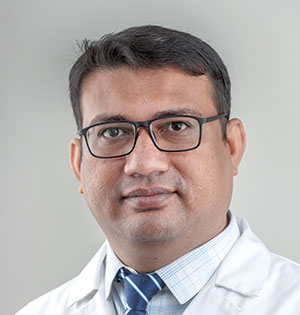Management of Pancreaticobiliary Disorders and Cancers in Pune
Expertise in Diagnosis, Treatment, and Support: A Multifaceted Approach to Pancreaticobiliary Management
Jupiter Hospital leads the way in delivering comprehensive care for the effective management of Pancreaticobiliary Disorders and Cancers treatment in Pune. Our exceptionally specialized medical team has an established track record of addressing these intricate conditions, offering an extensive range of medical services and therapeutic solutions.
Pancreaticobiliary Disorders and Cancers encompass a wide spectrum of ailments associated with the liver, gallbladder, and pancreas, which are integral components of the digestive system. Our Pancreaticobiliary Disorders and Cancer hospital in Pune is dedicated to addressing a diverse array of conditions, including Ascites, Cirrhosis, Fatty liver disease (Nonalcoholic Steatohepatitis), Gallstones, disorders linked to the gallbladder, Hepatitis, Pancreatitis, Autoimmune Liver Disease, and Wilson's Disease.
Typical symptoms of liver and pancreatic disorders encompass abdominal pain, backache, bloating, cholestasis (impaired or obstructed bile flow), dark-colored urine, clay-colored stool, fever, abdominal fluid accumulation, indigestion, jaundice (skin and eye yellowing), liver enlargement, loss of appetite, and liver failure.
Gastrointestinal (GI) malignancies encompass cancers affecting various parts of the digestive tract, including the stomach, large and small intestines, pancreas, colon, liver, rectum, anus, and biliary system. Early-stage GI cancer often presents with no discernible symptoms and is typically identified through routine screenings. As the disease progresses, symptoms may manifest, such as abdominal cramping or pain, bloody or dark stools, changes in bowel habits, swallowing difficulties, digestive irregularities, jaundice (yellowing of the skin and eyes), vomiting, nausea, fatigue, weight loss, and diminished appetite.
Early detection is pivotal in thwarting the advancement of advanced GI cancer. Screening techniques, such as colonoscopy, are pivotal in identifying colon and rectal cancer during its most treatable stages, often before symptoms become apparent. In addition to colonoscopy, alternative screening methods are available, and patients are encouraged to consult their healthcare professionals to ascertain the most suitable approach.
The Pancreaticobiliary Disorders and Cancers Hospital in Pune remains steadfast in its commitment to offering comprehensive care for Pancreaticobiliary Disorders and Cancer treatment in Pune, ensuring optimal outcomes for patients in need.
Team
Looking for the Management of Pancreaticobiliary Disorders and Cancers in Pune
Patients Speak
Hear the heartwarming stories of patients overcoming difficult afflictions
















 View Map
View Map Book an Appointment
Book an Appointment Find a Doctor
Find a Doctor Health Check-up
Health Check-up









 Find a Doctor
Find a Doctor Health Checkup
Health Checkup Book an Appointment
Book an Appointment